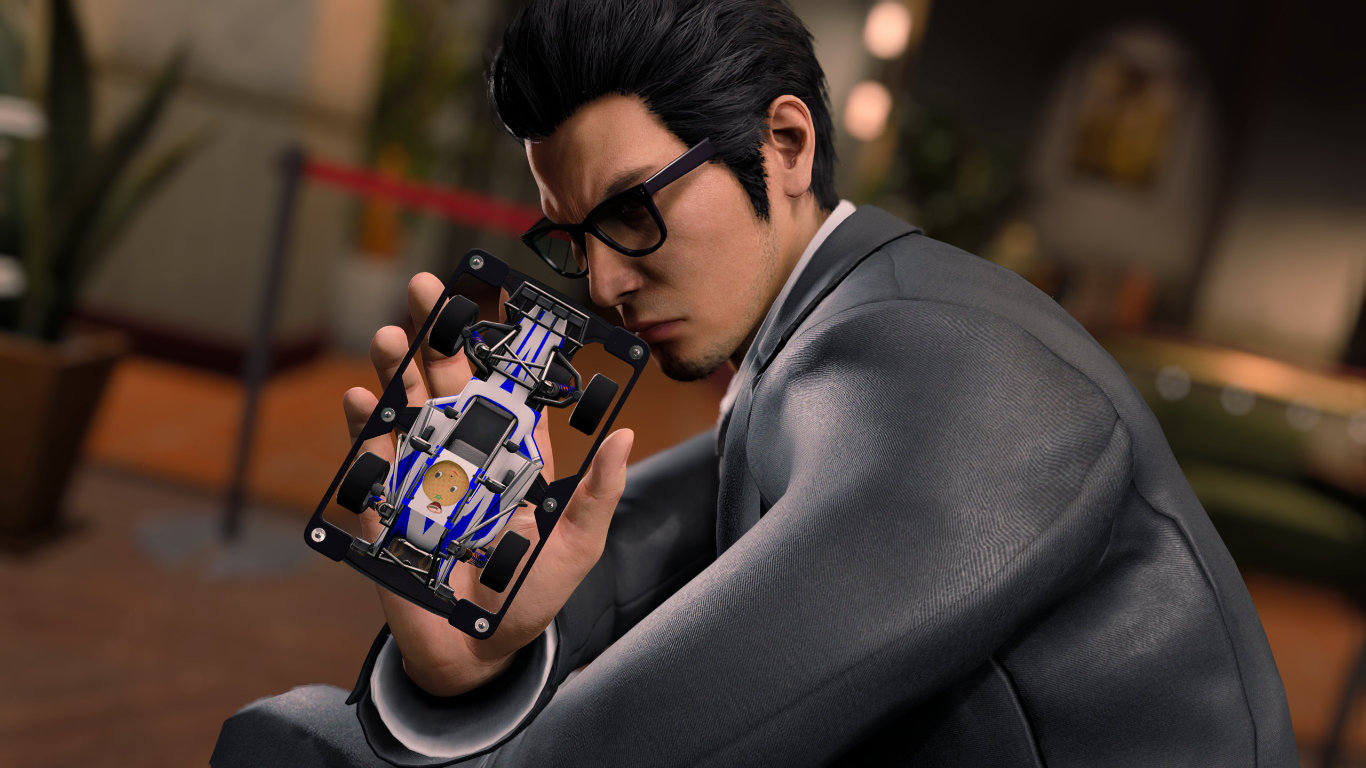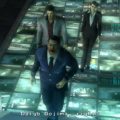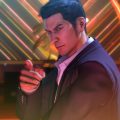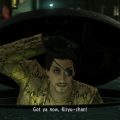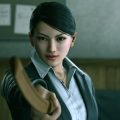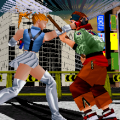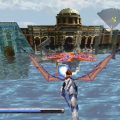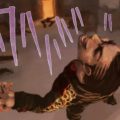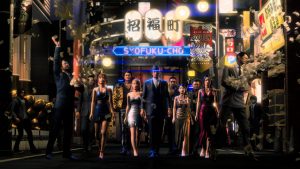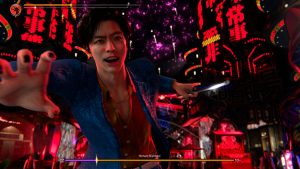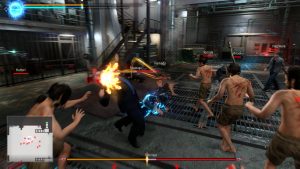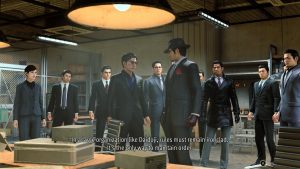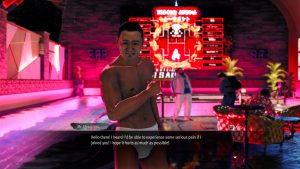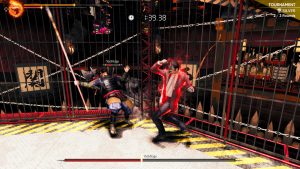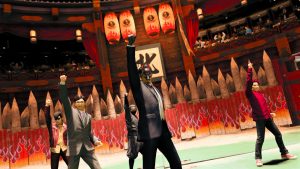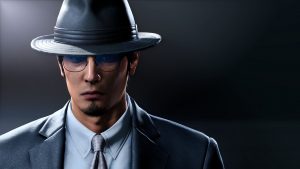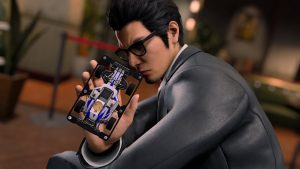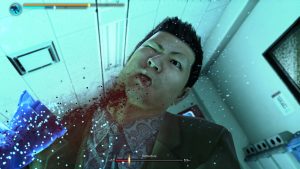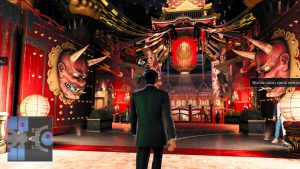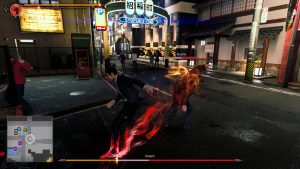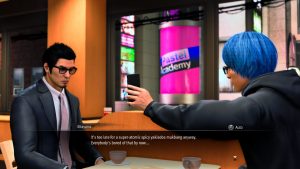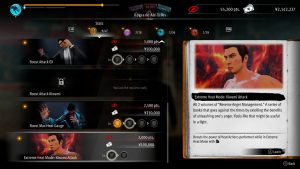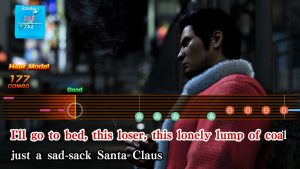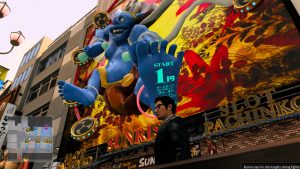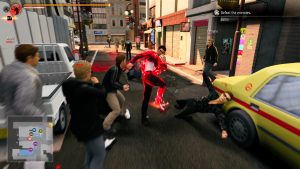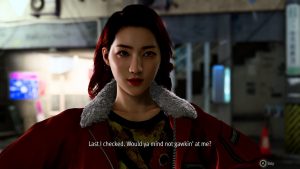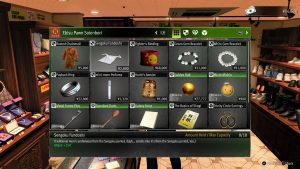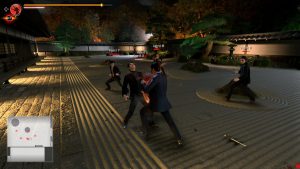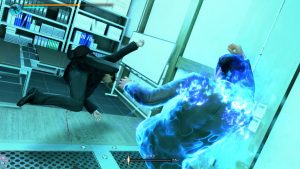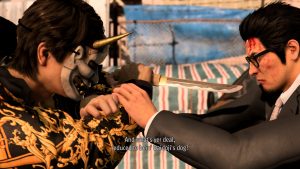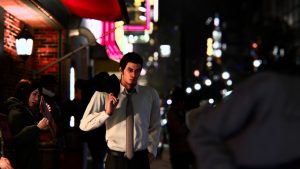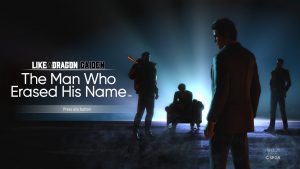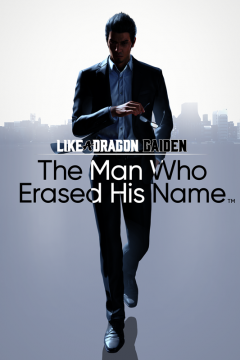
This article will discuss spoilers for Yakuza 6
Before we talk about Gaiden, we need to establish that Ryu Ga Gotoku Studio went under some changes after the last main game entry. Studio and series founder Toshihiro Nagoshi had a title change in January 2021, and then left a month after Lost Judgment released with series director Daisuke Sato to form a new studio at NetEase. Another big shake-up this would lead to is the main series writer Masayoshi Yokoyama taking the reins of the studio, meaning the guy in charge of scripts and story direction now had a lot more responsibilities. All of that might explain the weird place the modern series has found itself in.
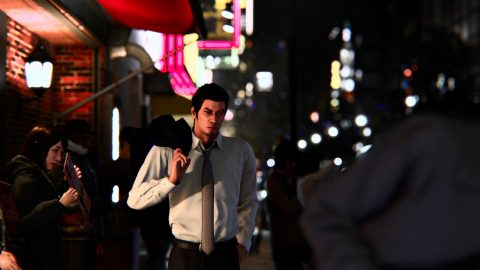
Gaiden was announced alongside Infinite Wealth and the Ishin remake, all released within the span of a year. That is, frankly, insane. Hearing that they apparently finished the dev cycle on this one in six months on the tail end of Infinite Wealth‘s development also helps explain a lot about this smaller scale entry for the series. An experiment in creating a more compact Like A Dragon that was somewhere between a Kaito Files style DLC and a full release, Like A Dragon Gaiden: The Man Who Erased His Name is a curious beast that it a bit troubling as a possible blueprint for future smaller releases from RGG, but a surprisingly solid entry in its own right – even if it is still as padded out as most major releases.
Set alongside the events of Yakuza: Like A Dragon, we follow one “Joryu,” a poorly named false identity for Kazuma Kiryu. After making a deal with the shadowy Daidoji group in Yakuza 6 to play dead in exchange for the safety of his orphans, he’s also found himself being bent to do odd jobs for them. A recent one revolving around some political smuggling as a middleman ends up being a set-up by the Omi Alliance, who know Kiryu is alive, and want him on Watase’s request – they’ll need the dragon’s strength for something big coming very soon. If he doesn’t meet with them to discuss, his Daidoji handler Hanawa, who they capture shortly after in Yokohama, dies. The legendary fourth chairman finds himself trapped between his current existence and his old legacy as he comes to Sotenbori to find Hanawa and figure out what the Watase family wants with him, finding plenty of new enemies alongside the ones he’s made his bed with.

Gaiden‘s story is a bit uneven, partly due to having to line it up with Ichiban’s adventures. That limits what Kiryu can do and where he can go, resulting in a huge time jump between chapters four and five as major events happen on Ichiban’s end. It’s odd, made all the odder by the Daidoji being one of the most ill-defined factions in the series. They’re not much more than a mysterious and vaguely sinister conspiracy with poorly defined goals or motives, the most we get is that some of the funders are interested in profit to compare them to the yakuza structurally. That isn’t really enough, and things don’t improve in Infinite Wealth for them. Chapters three and four are also clearly only here so we have some sort of conflict before we reach the finale, having very little connection to much of anything while having us watch the hammiest Majima expy yet. It’s amusing, but ultimately nothing we haven’t seen before, especially when said character is using a legacy name and using a similar personality.
That said, the game ends extremely strongly, and acts overall as a great send-off for Kiryu as an action-based Like A Dragon protag. The finale is a great reflection of his time as a legendary yakuza and why he hates that part of himself so much, a perfect examination of the reality of the yakuza while still having empathy for those who lived that sort of life. We even get an all-timer final boss and antagonist, a perfect examination of a cruel society creating the monstrous yakuza they fear so much. Substories are a bit more mixed this time, but all of them are amusing enough, while others are surprising standouts, including one where Kiryu ends up butting heads with Kaito from the Judgment games. There’s even time to throw in some nostalgic flair that actually has some pathos to them, including a final look at Kazama’s messy legacy.
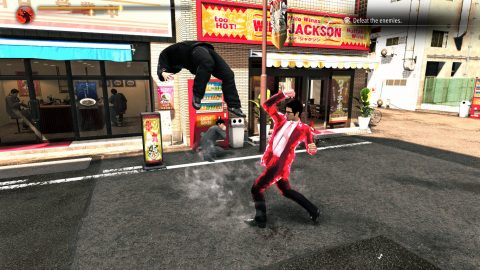
Combat-wise, Kiryu regains his normal dragon engine style, or “yakuza” style, partway through the first chapter, which is mainly your “power” style for dishing out damage on one enemy. His starting agent style, however, is a different beast, initially focused on speed and quicksteps, and eventually growing into a bag of tricks. The big gimmick is that when in agent style, Kiryu can use four different gadgets via holding a face button with devastating effects.
You start off with an energy beam unleashed via a wrist device that acts as a long range grab, opening options for bringing enemies in for punishment, or simply flicking them away behind you (and off bridges!). It also doubles as an item grabber while exploring the city, rewarding you for looking at odd camera angles for shiny spots. You can then get the ability to summon drones to damage and distract enemies, light and flick out little bombs disguised as cigarettes, and charge into enemies with rocket boots. The last gadget is a bit under-cooked, mainly there to thin out mobs, but the others all gain a ton of utility the more you invest into them.
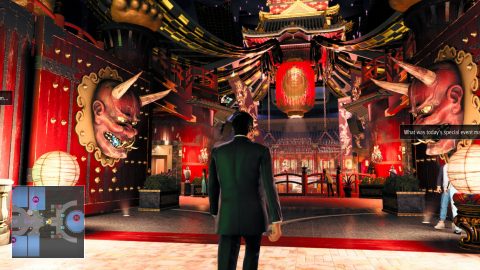
The “invest” wording is very intentional, as we are back to buying upgrades instead of a straightforward experience system. There’s also the added ripple of many upgrades needing Akane Network points as well, the Akane Network being an information network run by a woman in Sotenbori named Akane. For your purposes, it acts as the completion list, complete with challenges that earn points, minigames and substories rewarding the same. That makes the side stuff more necessary than usual, but that’s also clearly a decision to pad out the fairly short campaign so the game functions as a stand-alone release. That creates some pacing problems, as it does for every major mainline entry, but the side stuff on offer is solid. As for arcade games, we get Fighting Vipers 2, Motor Raid (also seen in Judgment), and Sega Racing Classic 2, which is Daytona USA 2 without the license, making it the first available home port of the game. We even get to see the return of pocket racers and a new coliseum mode.
The latter is a bit underwhelming, mind. Options are shaved down for bouts due to a focus on a new type of fight called the Hell Team Rumbles. The idea is that Kiryu will meet dudes (or get them via gacha pulls) that he can invite to these rumbles, huge slobber-knockers between absurd numbers of fighters. It’s initially fun, but once you remember you’re fighting with the barely functional ally bots (which have been poor since Yakuza 3) and enemies start becoming more tanky, the fun starts to drain away. It’s really obnoxious in the final few substories in the game, as it becomes a race to drain an absurd health bar as the clock ticks down and tons of enemies are smashing into you from everywhere. There is a kind of neat gimmick where you can play as characters you recruit in other solo fights, but it’s mostly just a neat addition instead of anything substantial.
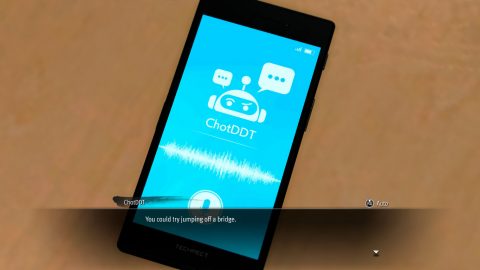
The dub is also excellent. Kanji Tang, in particular, is fantastic as Ichiban via focusing on his innocent nature, and you will get to hear him here in the finale of this game as you get to play out the Omi meeting from that game from Kiryu’s perspective. We mostly have a lot of returning actors, alongside new voices for the new cast here that all do good work. The one major exception is Kiryu himself. While they brought back Darryl Kurylo previously from the original game, we see him here replaced with Yong Yea. He does a great job imitating Kurylo’s take, while also nailing the big emotional moments, making Kiryu’s stoic persona breaking hit really hard. We even see some improvement here with Matt Mercer as Majima, who sounded a bit odd previously, trying too hard to mimic the first game’s Joker voice, but managing to finally find his own natural take here and in Infinite Wealth. Dub or sub, you’re getting some fantastic performances.
Alongside the usual strong cutscene direction and following up with Lost Judgment‘s renewed focus on unique scenes in boss fights, not to mention a solid score (highlight easily being the final boss themes), and you have a pretty full Like A Dragon package at a much shorter length of roughly 20+ to 30+ hours. The story has many a satisfying moment, despite some hiccups, and there’s some good fun to be had in the side stuff. This sounds great, but there is also this nagging feeling that Gaiden is also representative of RGG’s flawed production schedule.
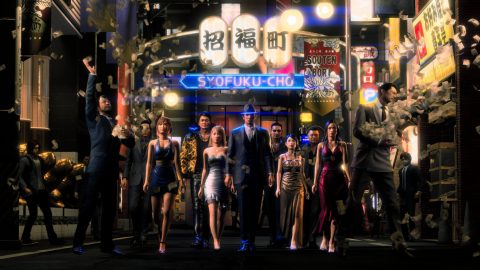
There’s more recycling than usual, from Kiryu actually having a freaking drink link in a game with no party or bond system, to Sotenbori feeling like it is completely stuck in 2006 because there wasn’t enough time to update Kiwami 2‘s once again reused map. This took a scant six months to make, and it really shows at points, and it’s a bit frustrating because it feels like some of the team thinks this constant recycling is clever. We had this starting with Furuta’s scripts constantly mentioning previous games (down to Lost Judgment‘s story structure being a near full lift of the first Judgment‘s), and asset reuse has become so absurd that we have reached a point where random mooks get Majima’s unique bat move animations from Yakuza 0. It feels insecure, like the game wants you to remember previous fun you had instead of focusing on what this entry offers, a level of navel gazing that is starting to become detrimental.
This is becoming a huge weak point for the studio because Like A Dragon has been around so long that it has become influential, and more studios are running with their once unique ideas in fresher ways. Final Fantasy VII Rebirth has taken notes on the series’ unique tone balancing in its main story and side stuff while improving on it in terms of production value and writing quality, and there are countless indie and middle market releases where you travel around a city and take part in fights with RPG upgrade systems. The studio needs more time to cook, to do something special again, and making a smaller scale LAD game isn’t the way to do that.
So, did Infinite Wealth manage to be that something special? Well, let’s find out as the finger on a nearby monkey paw curls, but only slightly…
